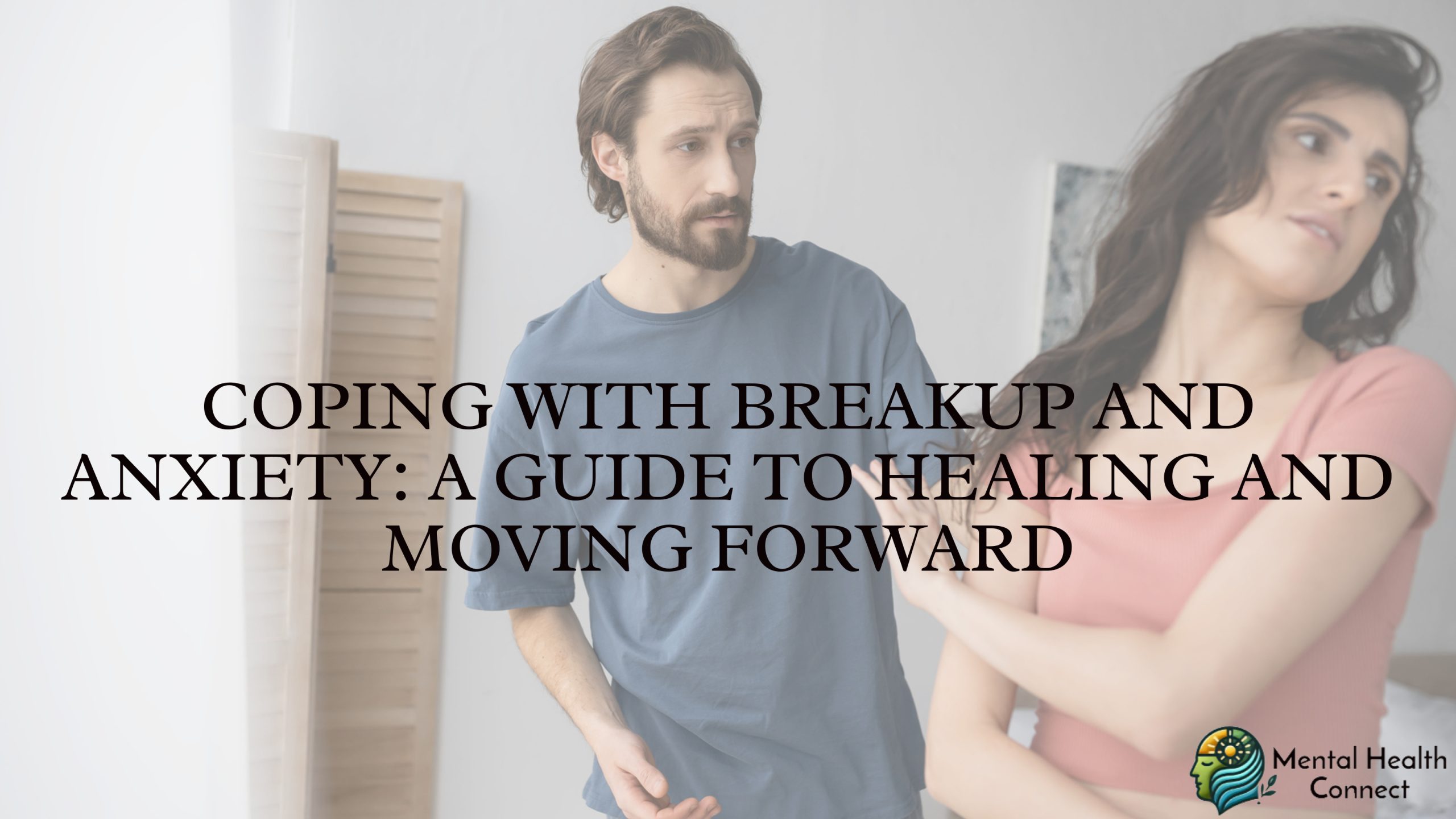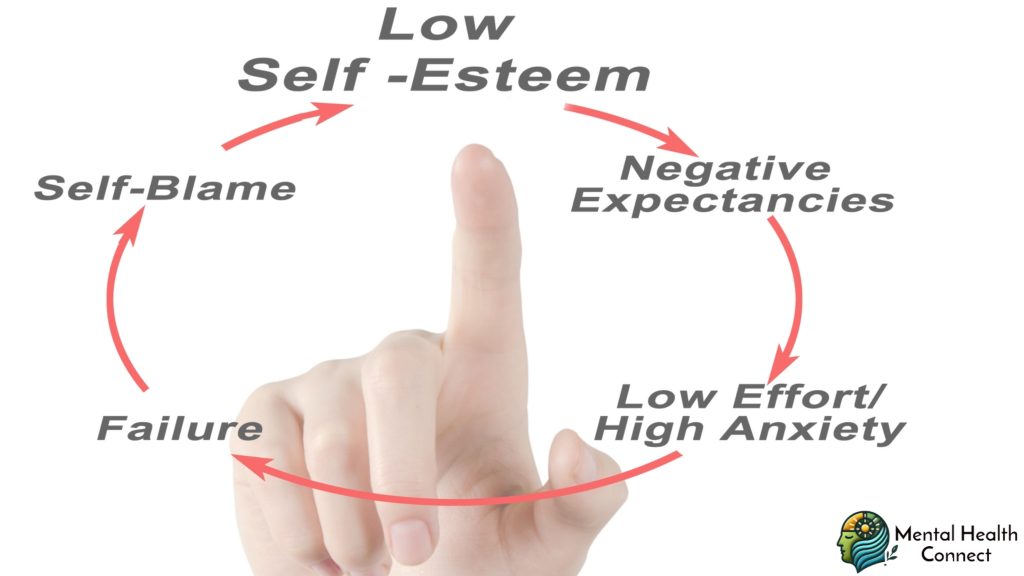Coping with Breakup and Anxiety: A Guide to Healing and Moving Forward

Breakups can be emotionally devastating, often leading to anxiety, self-doubt, and overwhelming sadness. Whether the relationship was long-term or short-lived, the impact of heartbreak can significantly affect your mental well-being. Understanding breakup anxiety and learning how to manage it effectively is crucial for healing and personal growth. In this guide, we’ll explore why breakup anxiety occurs, how to navigate it, and practical steps to regain emotional balance and move forward with confidence.
Breakup anxiety stems from the attachment formed during the relationship. When that attachment is suddenly severed, the brain reacts similarly to withdrawal from addiction. This can make moving on feel overwhelming and even physically painful. However, just as recovery from addiction is possible, so is overcoming breakup anxiety.
What is Breakup Anxiety?
Breakup anxiety refers to the intense emotional distress experienced after a romantic relationship ends. It can manifest in various ways, including:
- Persistent thoughts about the ex-partner
- Feelings of loneliness and sadness
- Difficulty sleeping or eating
- Increased stress and self-doubt
- A sense of loss or emptiness
Examples of Breakup Anxiety
- Overanalyzing past conversations and moments
- Feeling unworthy or fearing future relationships
- Experiencing physical symptoms like headaches, nausea, or fatigue
- Engaging in obsessive behaviors like constantly checking your ex’s social media
Why is Managing Breakup Anxiety Important?

Breakup anxiety, if left unchecked, can lead to long-term emotional struggles such as depression, low self-esteem, and avoidance of future relationships. Addressing these emotions early allows for:
- Improved mental health
- Personal growth and self-discovery
- Healthy emotional resilience
- The ability to move forward without baggage
- Increased self-awareness and emotional maturity
The pain of a breakup, while challenging, also presents an opportunity for personal transformation. Many people use this time to reflect, set new goals, and build a stronger, healthier mindset.
How to Cope with Breakup Anxiety

1. Acknowledge Your Emotions
Allow yourself to feel the pain without judgment. Suppressing emotions can prolong the healing process. Cry if you need to, talk about your feelings, and give yourself permission to grieve the loss of the relationship.
2. Establish a No-Contact Rule
Avoid reaching out to your ex, checking their social media, or reminiscing excessively. Cutting off communication helps you gain emotional clarity and break the cycle of dependency.
3. Lean on a Support System
Surround yourself with friends, family, or a therapist to share your feelings and receive guidance. Isolation can amplify negative emotions, so make an effort to stay connected with those who uplift you.
4. Engage in Self-Care Activities
Prioritize your physical and mental well-being through:
- Exercise (boosts endorphins and reduces stress)
- Meditation (calms the mind and promotes self-awareness)
- Hobbies (pursue creative or recreational activities that spark your interest and bring a sense of accomplishment)
- Healthy eating (nourishing your body supports emotional balance)
- Adequate sleep (restorative sleep is essential for healing)
5. Redirect Your Focus
Set new goals, take up a new hobby, or engage in activities that promote self-growth. Use this time to rediscover your passions and redefine your identity outside of the relationship.
6. Seek Professional Help if Needed
If anxiety becomes overwhelming, consulting a therapist can provide structured coping strategies. Therapy can help you work through unresolved emotions, identify patterns, and develop healthier relationship habits.
Best Practices for Healing Post-Breakup
- Practice Mindfulness: Stay present and avoid dwelling on the past.
- Journaling: Write down your thoughts to process emotions effectively.
- Set Boundaries: Avoid toxic interactions with your ex or mutual friends.
- Stay Active: Physical movement helps in releasing endorphins, which boost mood.
- Limit Social Media Exposure: Constantly checking on your ex can hinder the healing process.
- Create a Vision for the Future: Set new personal or professional goals to give yourself a sense of purpose and direction.
Common Mistakes & How to Avoid Them
| Mistake | Solution |
| Suppressing emotions | Allow yourself to grieve and express feelings openly. |
| Seeking closure from your ex | Find closure within yourself through self-reflection. |
| Rushing into a new relationship | Take time to heal before committing to someone new. |
| Isolating yourself | Reach out to friends, family, or professionals for support. |
| Comparing your healing process to others | Understand that healing is unique to each person and takes time. |
Future Trends & Predictions in Coping with Breakup Anxiety

With advancements in mental health awareness and technology, coping strategies for breakup anxiety are evolving. Some trends include:
- AI-Powered Therapy Apps – Online tools providing guided emotional support.
- Increased Emphasis on Mental Health Education – Schools and workplaces integrating emotional resilience training.
- Holistic Healing Approaches – More individuals embracing meditation, mindfulness, and alternative therapies.
- Support Groups & Online Communities – Virtual support networks providing a sense of belonging and shared healing experiences.
FAQs About Breakup Anxiety

1. How long does breakup anxiety last?
The duration varies for each individual, but it typically ranges from a few weeks to several months. Healing doesn’t follow a straight path setbacks are a natural part of the process.
2. Can a breakup cause physical symptoms?
Yes, emotional distress can manifest as headaches, stomachaches, and fatigue. Stress hormones can also weaken the immune system temporarily.
3. Is it a good idea to stay friends with my ex?
It depends on your emotional readiness. If staying friends hinders your healing, it’s best to maintain distance. Time apart can provide clarity before deciding on a friendship.
4. Can therapy help with breakup anxiety?
Yes, therapy provides coping techniques and emotional support for faster healing. It can help you reframe negative thoughts and develop healthier relationship perspectives.
5. How do I stop overthinking after a breakup?
Practice mindfulness, engage in new activities, and avoid triggers like social media stalking. Challenge negative thoughts by focusing on the present moment.
6. Will I ever find love again?
Yes, healing takes time, but embracing self-love and growth will prepare you for healthier future relationships. Trust that love will find you when you’re ready.
7. What are signs that I’m healing from my breakup?
- Less emotional distress
- Acceptance of the breakup
- Excitement for the future
- Focus on self-improvement
- A stronger sense of self-worth
Breakup anxiety is a natural response to emotional loss, but it doesn’t have to define your future. By acknowledging your feelings, prioritizing self-care, and embracing support systems, you can navigate this challenging period with resilience. Healing takes time, but every step forward brings you closer to emotional stability and newfound self-confidence. If you’re struggling, don’t hesitate to seek professional guidance. This is just one chapter of your life your story is still unfolding. Keep moving forward.
-
 How to Support Someone with OCDApril 17, 2025
How to Support Someone with OCDApril 17, 2025 -


Leave a Reply